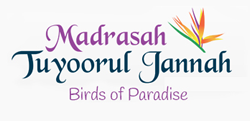Down’s Syndrome
What is it?
Down syndrome (DS), also called Trisomy 21, is a condition in which extra genetic material causes delays in the way a child develops, both mentally and physically. It affects about 1 in every 800 babies.
The physical features and medical problems associated with Down’s syndrome can vary widely from child to child. While some children with DS need a lot of medical attention, others lead healthy lives.
Though Down’s syndrome can’t be prevented, it can be detected before a child is born. The health problems that can go along with DS can be treated, and there are many resources within communities to help children and their families who are living with the condition.
Symptoms
The symptoms of Down’s syndrome can affect a person in many different ways. However, the most obvious symptom of the condition is its effect on a person’s physical appearance.
Physical appearance
People with Down’s syndrome tend to have a number of typical physical features. Some people with the syndrome only have a few of these features, while others are more severely affected.
The physical features of Down’s syndrome may include:
eyes that slant upwards
small ears
flat back of head
small mouth
protruding tongue
flattened nose bridge
white spots on the iris (the coloured part of the eye), known as Brushfield spots
short fingers
broad hands with a single crease across the palm
loose skin on the back of the neck
loose joints (babies in particular may seem ‘floppy’)
poor muscle tone (hypotonia)
low birth weight
vertical skin folds (epicanthic folds) between the upper eyelids and inner corner of the eye
Learning difficulties
All children with Down’s syndrome will have learning difficulties, which can range from mild to moderate.
One way of measuring a person’s intelligence is to use a type of test called an intelligence quotient (IQ). An IQ test involves exercises that are designed to assess specific capabilities.
The average IQ score for the general population is 100. People with Down’s syndrome have an IQ of 25 to 80, with an average score of 50.
In particular, children with Down’s syndrome may have:
memory problems – both short-term and long-term memory
concentration problems – many children have low attention spans
difficulty problem solving
difficulty understanding the consequences of their actions
delayed development
Children with Down’s syndrome have delayed physical and mental development.
Children with Down’s syndrome are usually much shorter than other children their age. Growth continues through childhood but most adults with Down’s syndrome are below average height – around 158cm (5.2ft) for men and 140cm (4.6ft) for women.
With regards to mental development, children with Down’s syndrome usually take longer to reach important developmental milestones, such as:
learning to crawl
learning to walk
learning to speak
learning to read
learning the social skills that are used for social interaction
It is important to recognise that a child with Down’s syndrome may still be able to acquire most, if not all, of the mental and social skills that most other people develop. Their development simply occurs at a slower pace.
Parents’s Tips
People with Down’s syndrome have special medical and social needs, but they can live full lives, take part in further education, have jobs and relationships, and live independently.
Medical and social support:
A team of professionals will help support people with Down’s syndrome, and their families. This team may include your GP, a paediatrician, midwife, health visitor, occupational and speech therapists and a physiotherapist.
Specialist doctors monitor all babies with Down’s syndrome for health problems, and children with the condition have regular growth, hearing and sight, and thyroid checks. It’s also important for adults with Down’s syndrome to have regular sight, hearing and thyroid function tests.
Occupational therapists and dieticians can help with issues such as nutrition and educational support. Most children with Down’s syndrome go to mainstream schools, but there are schools for children with special needs.
Teacher Tips
A child with Downs may need individual support a lot of the time. However, do not be fooled, many children with downs are very intelligent and take advantage of your sympathy. Let them free as much as possible, laying out rules just as for everyone. Sometimes, you may need to be firm and assertive with them. Most children with Downs just need that extra little support to stick to instructions and keep in concentration.






